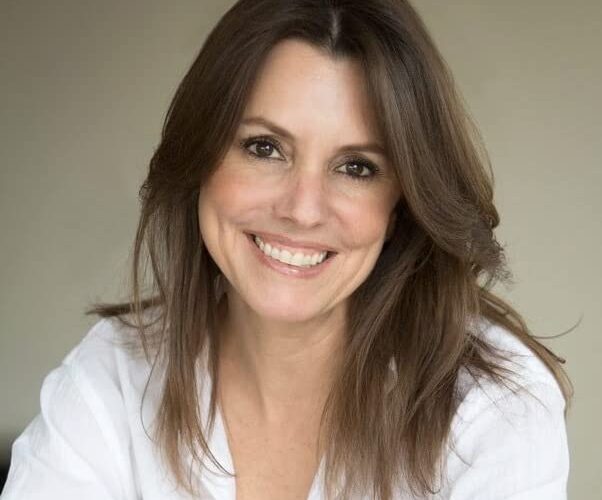Award-winning author Corie Adjmi explores the differences that exist between cultures when her main character moves from New Orleans to a Syrian Orthodox Jewish community in Brooklyn after her parents think she is going down the wrong path in an excerpt from her forthcoming novel, “The Marriage Box.”
I push food around my plate, feeling depressed, thinking about how unfair it is that while Tracey gets to decide which college she wants to apply to, I get to pick what bathing suit I want to wear in the Marriage Box—a one piece or two. I sit up tall and clear my throat. “So, I was thinking, I’d like to go to New Orleans for Christmas.”
“We don’t celebrate Christmas,” my father says, not looking at me.
I slump in my chair. Even though our house always sat bare, holiday time in New Orleans was spectacular. Lights flashed like smiles across rooftops, peppermint poles lined pathways, and Santa and his sleigh topped most every lawn.
“I want to go home,” I say, trying again.
“You are home,” my father says.
I stab a potato with my fork. “I want to go to New Orleans.”
My father still doesn’t look at me. He’s looking down at his plate. “You know you can’t go back.”
“Oh, that reminds me,” my mother says. “Your boss from Getaway, Mr. Betesh, called today. A rabbi got hold of him and gave him an earful about you working on the weekend. Apparently, Syrian girls don’t work on Saturdays, and the rabbi made it clear that community members couldn’t support an establishment that ignored the laws of Shabbat. Mr. Betesh doesn’t want any trouble. He’d rather you work fewer days.”
“But I need to work on Saturdays,” I say. “I need the money.”
“Don’t shoot the messenger,” my mother says, piercing a string bean. “The community’s changing. This is all new to me too. It wasn’t like this when I was young. A rabbi was there to
give advice. That’s all.”
“Well, it’s ridiculous. It’s not their business when I work.”
“Obviously, it is,” my father says.
“They have rules about everything.”
“Yes, they do. That’s the way it is here.”
“I don’t have to follow their rules.”
“That’s enough, Casey,” my father says, his lips tight.
I drop my knife, and it clanks against the side of my plate. “They can’t control me.”
“Casey, you’ve caused enough trouble. I’ve had it. Not another word,” my father says.
“But I need the money. I’m saving up.”
“Casey, I’m warning you.”
“It’s my life! I want to make my own decisions.”
My father leaps from his chair and puts his hand over my mouth like a gag. “Not another word, you hear me? Not another word,” he bellows, his face close to mine.
I’d seen my father lose his temper with strangers—the thief who tried to rob his antique store, a drunk who jumped a red light and almost hit our car, but never with me. Across the table, my mother sits frozen in her chair, and Sam’s eyes are wide and unblinking.
My father removes his hand from my mouth and mumbles, “I told you to keep quiet. You don’t listen. Why can’t you just listen?” He moves away slowly and sits down in his spot at the head of the table.
I keep my head down, eating heaping spoonfuls of potatoes, swallowing without chewing. “I guess I went a bit crazy for a minute,” my father says, not apologizing. “It’s just you’ve been relentless.”
“Casey, you push things too far,” my mother chimes in, her shoulders relaxing. “You have to know when to keep quiet.”
“Temporary insanity,” my father says, as if pleading a case. Sam hits his spoon like a gavel on the table. “Guilty as charged.” When my parents aren’t looking, Sam catches my eye. He circles his pointer finger at his temple and mouths, Crazy. My father tries to make light of the whole incident, but I don’t speak for the rest of the meal. Sometimes you can’t take back what’s happened. Not ever. I stuff my face with food until my stomach hurts so bad I think I might throw up.
Corie Adjmi is the award-winning author of the short story collection “Life and Other Shortcomings,” which won an International Book Award, an IBPA Benjamin Franklin award, and an American Fiction Award. Her forthcoming novel, “The Marriage Box,” explores the impact of culture and society on women through the lens of Casey Cohen, a teenage girl coming of age in an Orthodox Syrian Jewish community.









